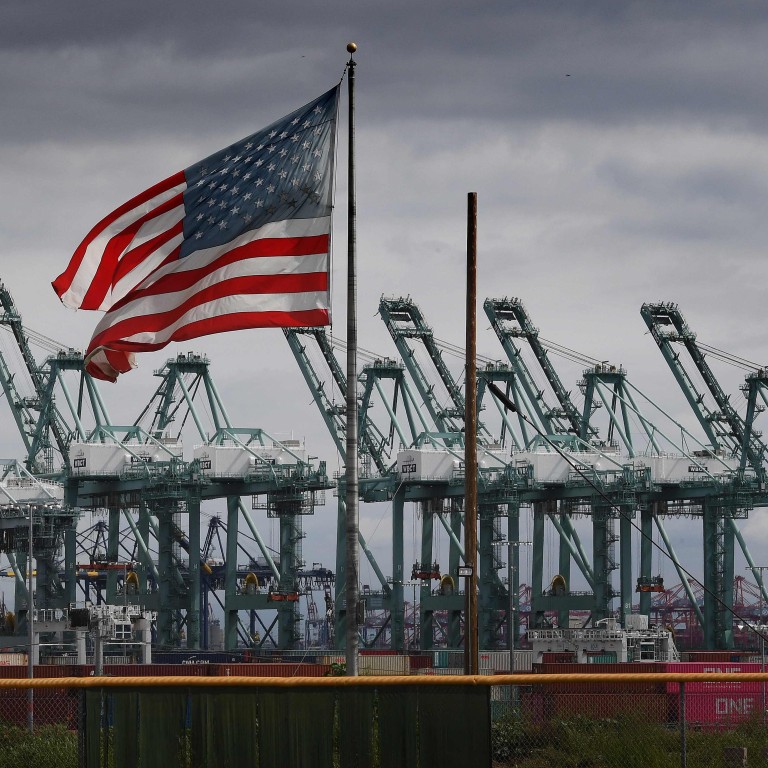
American firms’ move into China over past 20 years threatens US ability to lead and compete: report
- As US business in China focuses more on high-end tech production, the risk rises that America is helping Beijing reach industrial and military goals: report
- US business communities say China remains a preferred investment destination but the Covid-19 outbreak was a wake-up call on supply chains
The United States’ ability to be an industrial competitor and long-term tech leader might be eroded by the expansion of its multinational firms into China over the past two decades, a US congressional committee said.
“In analysing the evolution of US MNE [multinational enterprise] operations in China from 2000 to 2017, this report finds they may indirectly erode the United States’ domestic industrial competitiveness and technological leadership relative to China,” the report said.
“Additionally, as US MNE activity in China increasingly focuses on the production of high-end technologies, the risk that US firms are unwittingly enabling China to achieve its industrial policy and military development objectives rises,” it said.
Amid the all-out confrontation with Beijing, Washington has continued to bring in measures to restrict Chinese access to US know-how and technological products – wary of the dual use of technology for military as well as civilian purposes – and limit academic exchanges between the two countries.
William Barr says US businesses ‘part of problem’ in tech war with China
The report said US companies’ research and development spending in China expanded six times to US$3.7 billion in 2017 when China overtook Canada, Japan and France to become the fourth-largest destination for US companies’ overseas R&D expenditure.

“The Chinese government’s access to US innovation is rising in tandem with US MNE activity in China, raising the possibility of increased spillovers in critical technologies and inadvertent US commercial advancement of China’s military development,” it said.
In a move to signal that tensions were stretching to the financial arena, US senator Marco Rubio, a China hardliner, told Reuters on Wednesday he was preparing a bill to ban Chinese companies from US capital markets if they were involved in spying or human right abuses, or helped China’s military.
Eyeing the market potential of the rising middle-class population in China, foreign companies have adopted the “in China, for China” strategy, while also taking advantage of the country’s low labour costs, industrial clusters in the global supply chain and preferential policies by the central and local governments to serve other markets.
US-China US$200 billion trade deal leaves EU suppliers feeling left out
The report said the total commercial assets of US companies in China, among the fastest growing for all their foreign subsidiaries, surged 15-fold from US$29.3 billion in 2000 to US$446.7 billion in 2017. Their sales in China went up 13-fold to US$375.6 billion during the same period.
It said US companies now offered 1.7 million jobs in China, a sixfold increase since 2000. US manufacturers in China mainly focused on producing computers, electronic products and chemicals.
Calls by the administration of US President Donald Trump for American firms to move their production from China became louder after the new coronavirus outbreak disrupted industrial supply chains, bringing to the fore concerns about an over-reliance on China.
Business communities have said China remains a preferred investment destination because of its market potential. But the Covid-19 outbreak was a wake-up call, causing them to consider diversification, although moving business out could take years because China has gradually moved up the value chain with more mature and sophisticated industrial centres.
“US MNEs’ reliance on China as a source of sales and a pivotal hub for global manufacturing poses a risk of solidifying dependencies for selected industries that bear on US national security. Furthermore, such reliance threatens to heighten the cost of supply chain diversification,” the report said.

